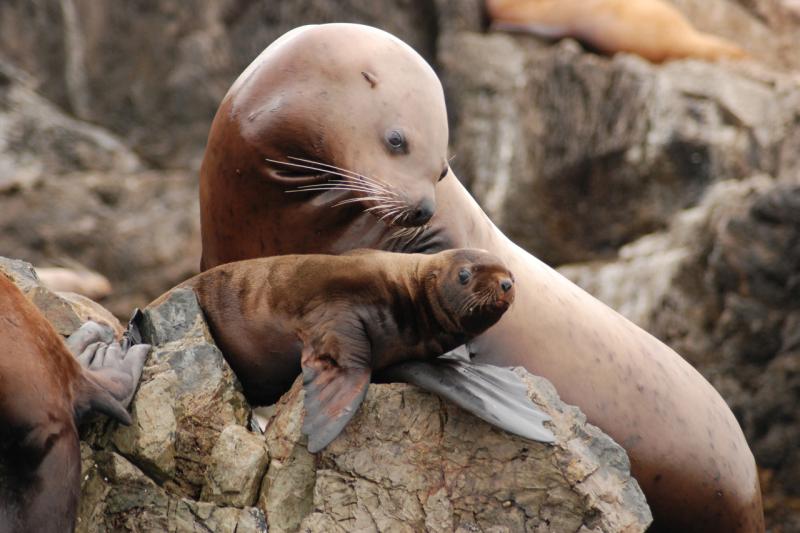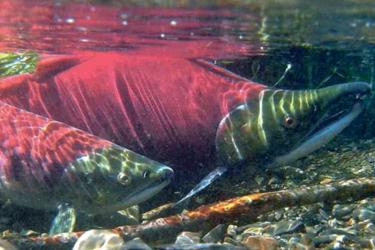The Marine Mammal Protection Act (MMPA) prohibits “take” of marine mammals unless an exception or exemption applies such as the take exemption for subsistence harvests by Alaska Natives.

NOAA Fisheries team collects samples from a dead Steller sea lion near Cordova, Alaska in June 2015.
The MMPA defines “harassment” as “any act of pursuit, torment, or annoyance which has the potential to injure a marine mammal or marine mammal stock in the wild; or has the potential to disturb a marine mammal or marine mammal stock in the wild by causing disruption of behavioral patterns, including, but not limited to, migration, breathing, nursing, breeding, feeding, or sheltering.”
Penalties for violating the MMPA include up to $28,520 and/or one year imprisonment.
“Marine mammals are an integral part of a healthy ecosystem,” said NOAA Fisheries Alaska Regional Administrator Dr. Jim Balsiger. “Unless it is being harvested for subsistence purposes, or is otherwise authorized, intentionally killing a marine mammal is illegal.”
The MMPA provides an exemption from the take prohibition for Alaska natives if such taking is for subsistence purposes or is done for the purpose of creating or selling authentic native articles of handicraft or clothing, and is not accomplished in a wasteful manner. This is a protected tradition that dates back thousands of years.
Fisheries Interactions
Seals and sea lions sometimes struggle to survive, especially in low fish years. NOAA Fisheries Stranding Program responded to multiple dead, emaciated Steller sea lions in 2017 and 2018, indicating that pinnipeds may be challenged to find enough food in some years and in some areas.
While there may be instances where pinnipeds damage fishing gear and catch when a fisherman is hauling a full net of fish, fishermen can often avoid pinnipeds without harming them.
Under the MMPA, fishermen may deter a marine mammal from damaging the gear or catch so long as such measures do not result in serious injury or the death of the marine mammal. However, this exception does not apply to ESA-listed marine mammals, such as the western distinct population segment of Steller sea lion, which primarily occurs west of Cape Suckling, Alaska (west of 144° W longitude).
NOAA Fisheries is currently working on publishing guidelines for safely deterring marine mammals. Once finalized, fisherman who take actions to deter marine mammals consistent with such guidelines or specific measures will not violate the law.
People, Seals, and Sea lions
Most people — including visitors and year-round residents — enjoy watching seals and sea lions. Marine mammal viewing is a growing industry and supports Alaska’s economy.
NOAA Fisheries responds to dead and injured marine mammals and collects information and evidence to determine cause of death or injury. If a marine mammal appears to have been wounded or killed illegally, this information is provided to law enforcement.
NOAA’s Office of Law Enforcement investigates allegations of the MMPA violations including unlawful takes.
To report a marine mammal violation, call (800) 853-1964. NOAA’s Office of Law Enforcement provides live operator coverage 24 hours a day, 7 days a week. To report a dead, injured, or otherwise stranded marine mammal in Alaska, call (877) 925-7773 (also 24/7 operator assistance).

